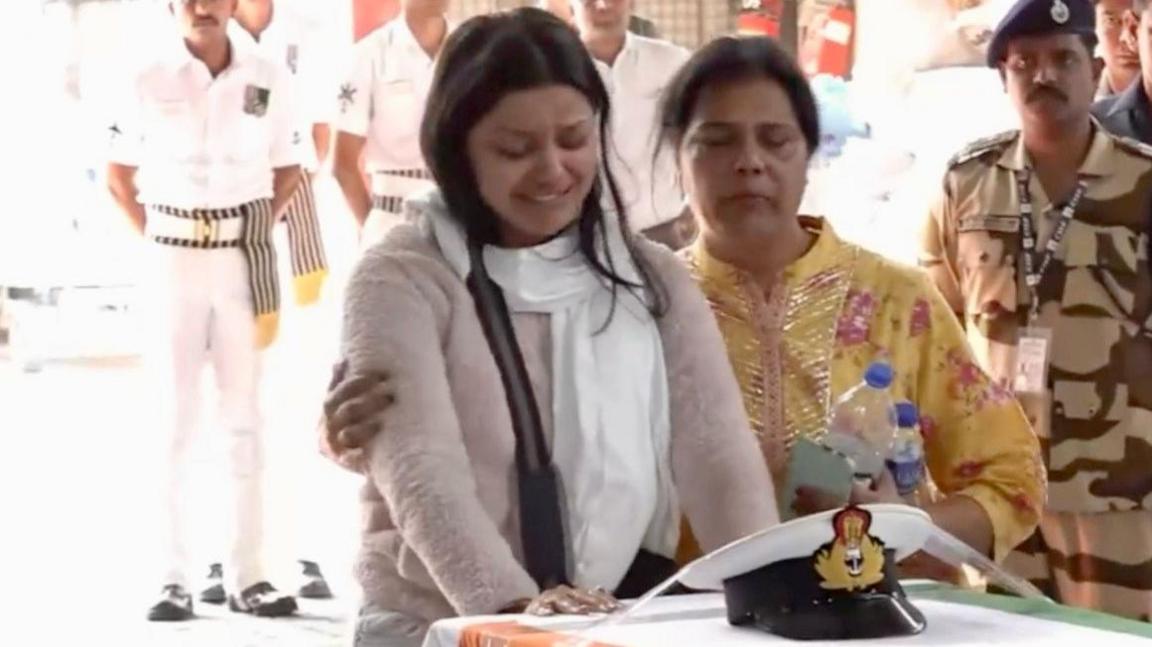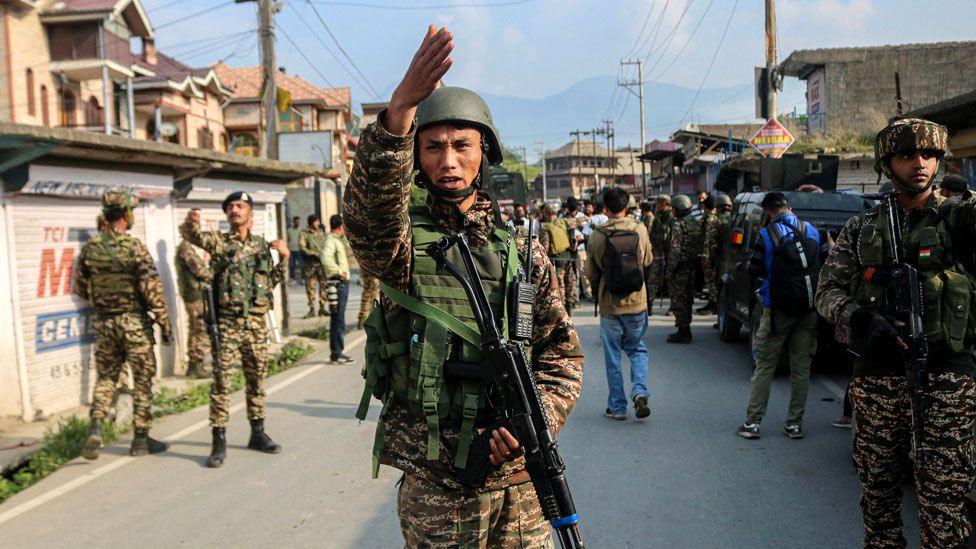'We need to stand united' amid India-Pakistan conflict
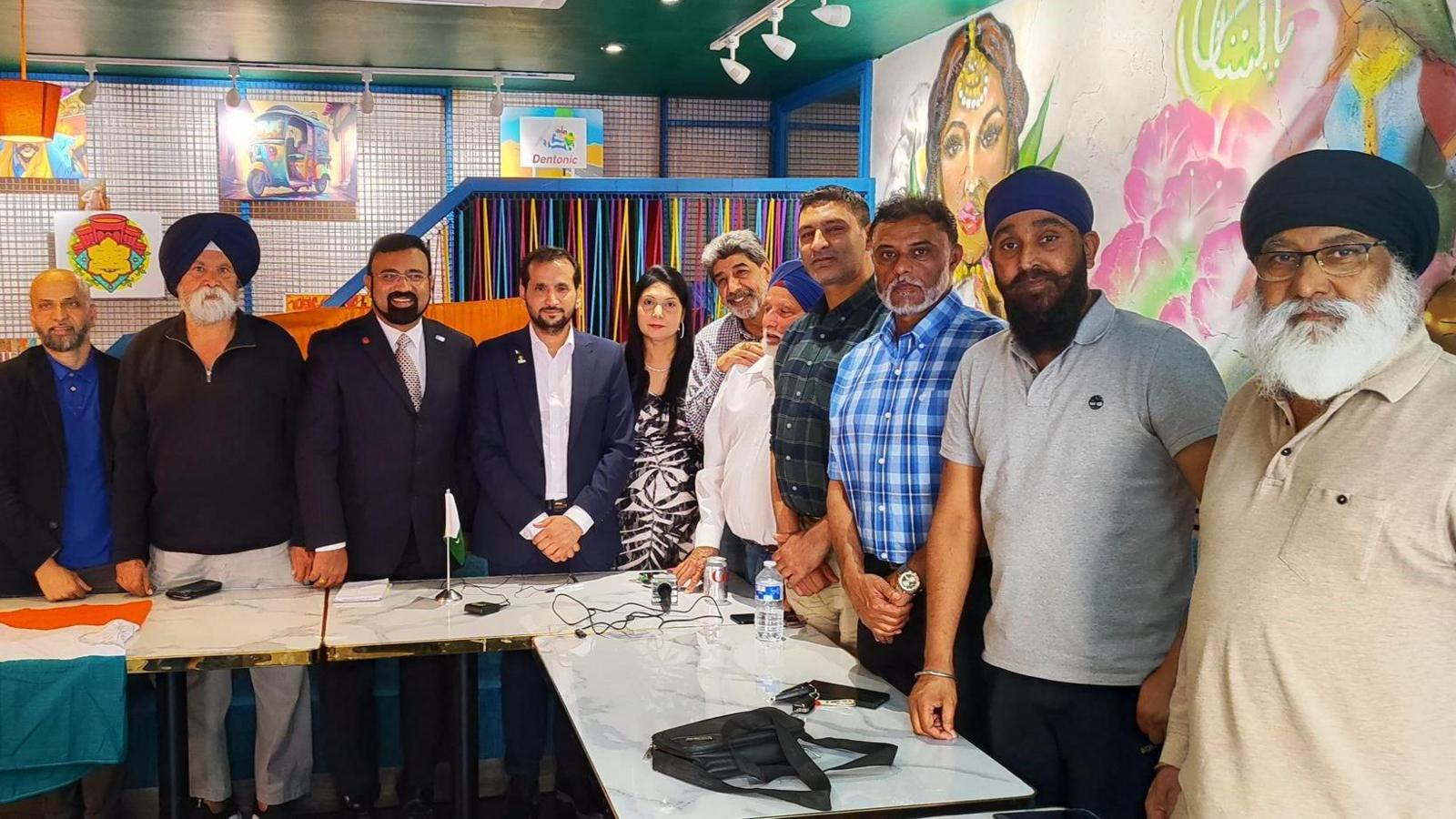
The International Human Rights Movement held an multi-faith meeting in Bristol where leaders called for unity
- Published
Community leaders have called for people to stand united as tensions escalate between India and Pakistan following reported military strikes between the two countries.
On Wednesday, Indian forces launched "Operation Sindoor" targeting sites in Pakistan and Pakistan-administered Kashmir, in retaliation for a deadly militant attack in Indian-administered Kashmir that killed at least 26 people on 22 April.
Pakistan denies involvement, but Indian authorities allege attackers included Pakistani nationals.
In the west of England, the impact of the conflict is reverberating on families who are fielding anxious WhatsApp calls. Local leaders are also stepping forward to offer guidance and solidarity.
There is growing concern, not only for relatives overseas, but also over the risk of tensions disrupting the unity between communities in the region.
Bristol Green Party councillor Abdul Malik, who recently returned from his ancestral village in Azad Jammu and Kashmir, said the escalation tension has "caused a lot of grief".
After Wednesday's strikes in Pakistan, a gathering was held at Easton's Jamia Mosque.
"It's so important to give a sense of security to the elders who've lived most of their lives in the UK but still feel so connected to what happens abroad," said Mr Malik.
"This isn't a war about religion. This is a political war about borders. We must not bring hatred to our streets and our homes.
"Bristol has a wonderful Indian and Pakistani community. We've sat together. We've listened. This is the time to stand united - and that's what we intend to do."
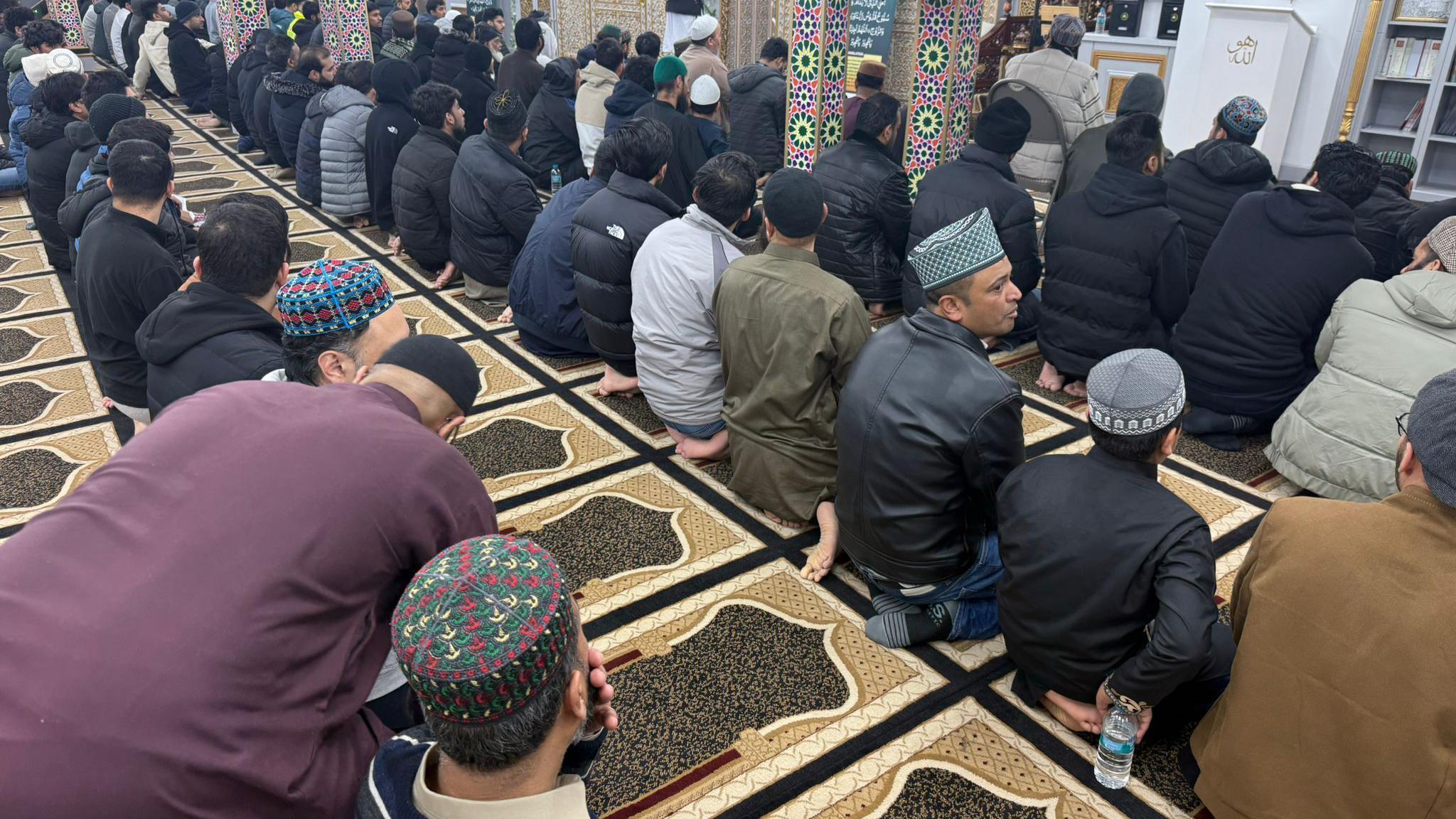
A gathering was held at the Easton Jamia Mosque on Wednesday afternoon
"Trying to avoid any conflicts is my main concern," said Pankaj Pandya, one of the trustees of the Hindu Temple in Bristol.
"Hopefully it doesn't escalate, and it doesn't become tit-for-tat leading to an outright war between two nuclear nations.
"Being an Indian myself, it's a concern for not only what is happening between India and Pakistan, but just generally the issues of war throughout the world at the moment."
Local leaders in the west of England are also are urging communities not to spread misinformation online.
"There's a lot of fake information and false news being spread around which doesn't help the situation," said Atiff Ghafar, vice chair of the Swindon Pakistan Association.
"So, we have been telling and encouraging our communities not to share unverified news reports."
Pakistan says 36 people have been killed by Indian air strikes and firing. India says at least 16 people were killed by Pakistani shelling on its side of the de facto border.
"As someone from the Pakistani diaspora, it's quite sad to see that there's tensions between both communities and innocent lives have been lost on both sides of the border," said Mr Ghafar.
"We don't want anything to be spreading across to this part of the world as we have very good cordial and friendly relationships with our Indian diaspora community who have lived with us side by side for a good 50 to 60 years."
On 29 April, an interfaith and intercultural meeting was organised in Bristol by the International Human Rights Movement (HRM), Bristol Pakistani Forum and the Bristol Multi-Faith forum.
Rana Basharat Ali Khan, chairman of the HRM, said: "It's so horrible to witness something like this in the 21st Century.
"It is not something we want to witness in this age, while we are fighting for justice.
"We need to change our priorities - we need to focus and invest on humans rather than defence and we need to come off this war affected mentality."
Indian-administered Kashmir has seen a decades-long insurgency which has claimed thousands of lives.
Kashmir is claimed in full by India and Pakistan but administered only in part by each since they were partitioned following independence from Britain in 1947.
The countries have fought two wars over the area.
Following the 22 April attack in Pahalgam, Indian-administered Kashmir, a Hindu prayer vigil was held on 27 April at the Hindu Garden of Peace in Gloucester to remember the victims of the deadly attack.
Speaking to the BBC Radio Gloucestershire at the vigil, Manish Jani said: "It is something horrific against humanity, not just against one country."
Hema Patel echoed those emotions: "Many people were killed, including Christians and Muslims. This is not about condemning any religion; we just pray for peace."
Dr Ashok and Dr Pravin Patel, co-chairs of the Hindu Cultural Association, both emphasised unity and empathy over division.
"The first religion is humanity," said Dr Pravin. "Any heinous act by one human on another is a blot on humanity."
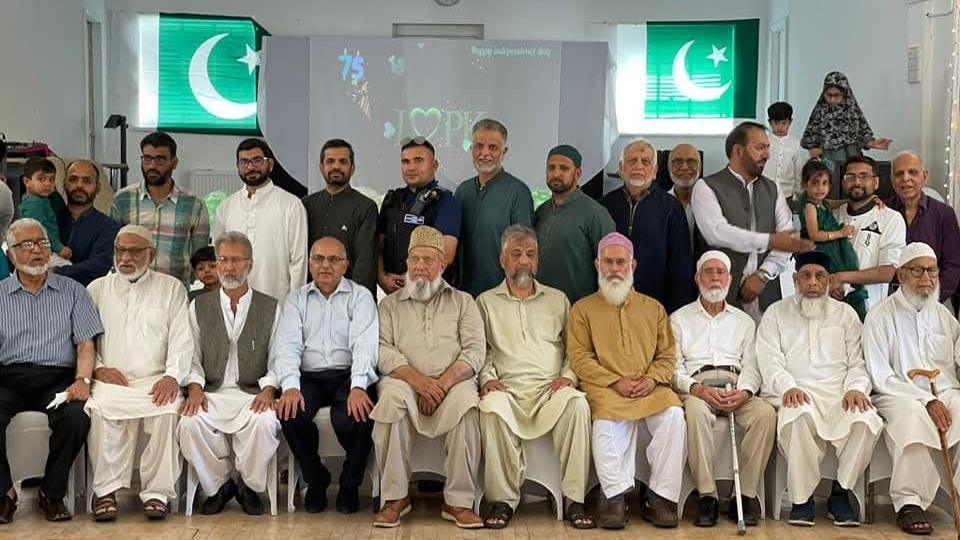
Atiff Ghafar, vice chair of the Swindon Pakistan Association, is encouraging communities to maintain peace
The Indian government says its forces have launched "Operation Sindoor", "hitting terrorist infrastructure" in Pakistan and Pakistan-administered Kashmir "from where terrorist attacks against India have been planned and directed".
In a statement, the Indian government said that "nine sites have been targeted".
"Our actions have been focused, measured and non-escalatory in nature. No Pakistani military facilities have been targeted. India has demonstrated considerable restraint in selection of targets and method of execution."
The statement adds that the attack was ordered after last month's deadly militant attack on tourists in India-administered Kashmir.
Get in touch
Tell us which stories we should cover in Bristol
Follow BBC Bristol on Facebook, external, X, external and Instagram, external. Send your story ideas to us on email or via WhatsApp on 0800 313 4630.
